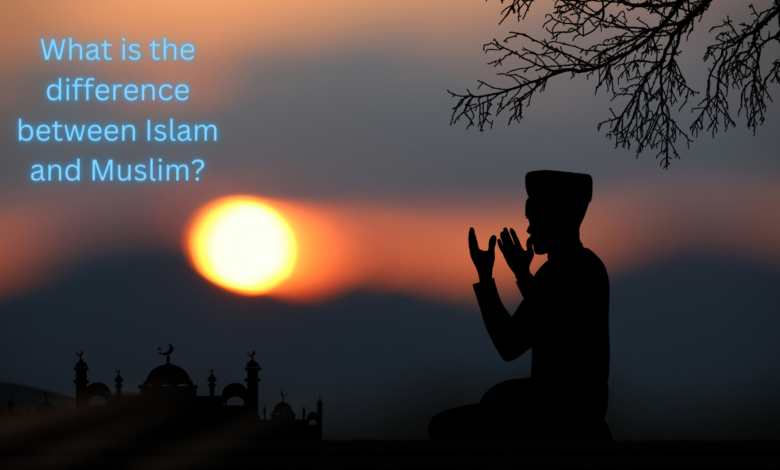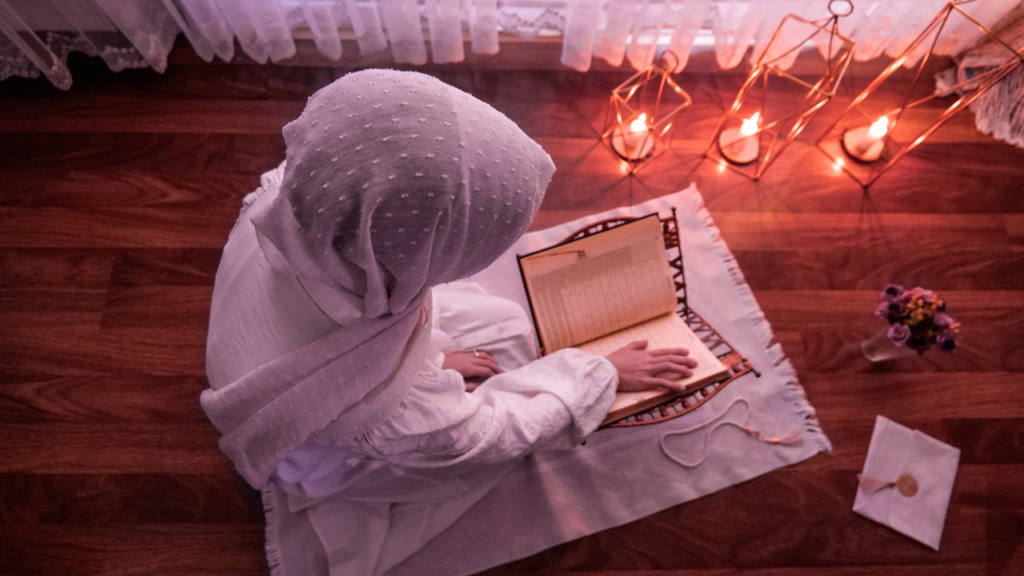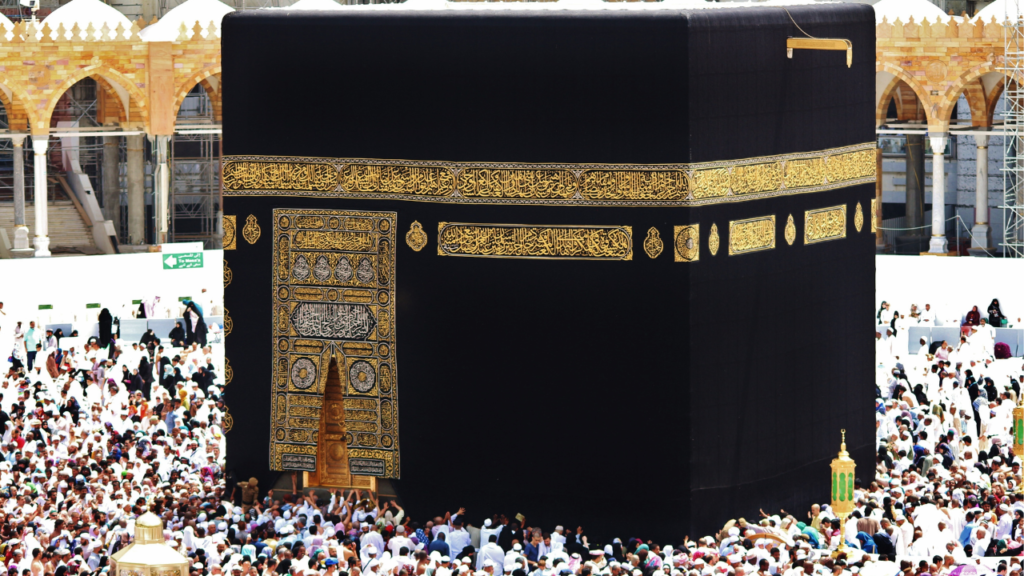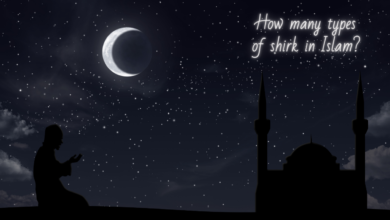
What is the difference between Islam and Muslim?
Islam is a monotheistic Abrahamic religion that originated in the 7th century CE in the Arabian Peninsula. It is based on the teachings of the Quran, which Muslims believe to be the word of God as revealed to the Prophet Muhammad.

Introduction
Islam and Muslim are two terms often used interchangeably, but they refer to distinct concepts within the context of the Islamic faith. Understanding the difference between Islam and Muslim is essential for those seeking knowledge about one of the world’s major religions. In this article, we will explore the meanings and significance of these terms.
Islam: The Religion
Islam is one of the world’s major monotheistic religions, with over 1.9 billion followers worldwide, making it the second-largest religion after Christianity. It is founded on the teachings of the Prophet Muhammad, who lived in the Arabian Peninsula in the 7th century CE. The word “Islam” itself is derived from the Arabic root word “S-L-M,” which means submission or surrender to the will of God.
Key Beliefs and Practices of Islam:
- Monotheism: Islam teaches the belief in one God, referred to as Allah in Arabic. This monotheistic belief is central to the Islamic faith.
- The Quran: Muslims believe that the Quran is the holy book of Islam, revealed by Allah to the Prophet Muhammad over a period of 23 years. It is considered the ultimate source of guidance for Muslims in all aspects of life.
- Five Pillars of Islam: These are the core acts of worship and practice in Islam, including the declaration of faith (Shahada), prayer (Salat), almsgiving (Zakat), fasting during Ramadan (Sawm), and the pilgrimage to Mecca (Hajj).
- Sharia: Sharia refers to the Islamic legal system derived from the Quran and Hadith (the sayings and actions of the Prophet Muhammad). It encompasses moral, ethical, and legal guidelines for Muslims.
Also check
- How to become a Islamic Scholar?
- How to Greet in Muslim?
- How do you repent in Islam?
- How to say how are you in Islam?
- How many types of shirk in Islam?
Muslim: The Follower of Islam
A Muslim is an individual who adheres to the Islamic faith and follows the teachings and practices of Islam. The term “Muslim” is derived from the Arabic word “Muslimun,” which means one who submits to God’s will. Muslims come from diverse backgrounds, ethnicities, and cultures, and they make up a significant portion of the global population.
Characteristics of a Muslim:
- Belief in Allah: A Muslim’s central belief is in the oneness of God (Tawhid) and the acceptance of the Prophet Muhammad as the final messenger.
- Observance of Religious Duties: Muslims are expected to perform daily prayers, fast during the month of Ramadan, give to charity, and undertake the pilgrimage to Mecca if they are physically and financially able to do so.
- Adherence to Moral and Ethical Principles: Islam emphasizes ethical conduct, honesty, humility, and kindness. Muslims are encouraged to lead virtuous lives.
- Community and Brotherhood: Muslims often form close-knit communities, and there is a strong sense of brotherhood and sisterhood among them.
Conclusion
In summary, Islam is the religion itself, founded on the teachings of the Prophet Muhammad and centered on the belief in one God (Allah). Muslim, on the other hand, refers to an individual who practices and follows the Islamic faith. While Islam provides the framework and beliefs, it is Muslims who live out those beliefs through their actions and daily lives. Understanding this distinction is crucial for promoting knowledge and tolerance in our increasingly diverse and interconnected world.

FAQs: What is the Difference Between Islam and Muslim?
What is Islam?
Islam is a monotheistic Abrahamic religion that originated in the 7th century CE in the Arabian Peninsula. It is based on the teachings of the Quran, which Muslims believe to be the word of God as revealed to the Prophet Muhammad.
Who are Muslims?
Muslims are individuals who follow the religion of Islam. They are the adherents of Islam and believe in the teachings of the Prophet Muhammad as conveyed in the Quran.
Is Islam a person, a place, or a thing?
Islam is a religion, not a person, place, or thing. It is a set of beliefs, practices, and guidelines for living a righteous and moral life according to the Quran and the traditions of the Prophet Muhammad.
Are Muslims a separate ethnic group?
No, Muslims are not an ethnic group. Islam is a religious identity, and Muslims come from diverse ethnic, cultural, and racial backgrounds. There are Muslims all over the world, and they belong to various ethnicities.
Can someone be a Muslim without practicing Islam?
Technically, someone can identify as a Muslim without strictly adhering to all the religious practices of Islam. However, being a Muslim typically implies a belief in the core principles of Islam, even if one’s level of practice may vary.
Is there a difference between Islamic culture and Muslim culture?
Yes, there is a distinction. Islamic culture refers to the cultural practices and traditions associated with Islamic faith and principles, while Muslim culture encompasses the diverse cultural expressions of people who identify as Muslims, which can vary greatly based on geography and local customs.
What are the core beliefs of Islam?
The core beliefs of Islam include the belief in one God (Allah), the belief in the prophethood of Muhammad, belief in the Quran as the holy scripture, the practice of prayer (Salah), charity (Zakat), fasting during Ramadan (Sawm), and pilgrimage to Mecca (Hajj).
Can someone convert to Islam and become a Muslim?
Yes, individuals can convert to Islam by reciting the Shahada, a declaration of faith, in the presence of witnesses. This marks their formal entry into the Muslim community.
What is the difference between Islam and other religions, like Christianity or Judaism?
Islam, Christianity, and Judaism are all monotheistic Abrahamic religions with common historical and theological roots. The primary differences lie in their beliefs about the nature of God, their scriptures (Quran for Islam, Bible for Christianity and Judaism), and their religious practices.
Can Muslims belong to different sects within Islam?
Yes, there are several sects within Islam, such as Sunni, Shia, and others, each with its own interpretations of Islamic teachings and practices. These sects can differ in matters of religious leadership, theology, and jurisprudence.






